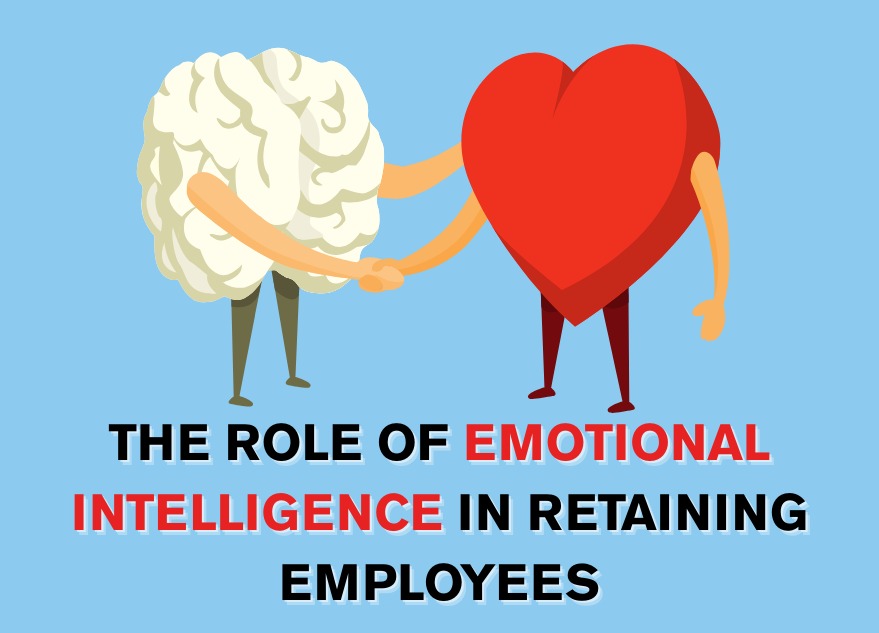Emotional intelligence (EI), the ability to recognize, understand, manage, and utilize emotions effectively, plays a crucial role in various aspects of the workplace, including employee retention. High levels of emotional intelligence among leaders and employees can lead to a more harmonious and productive work environment, which in turn helps in retaining talent. Let us explore how EI influences employee retention.
💡 Are you looking for Coworking space in Gurgaon, Noida or Delhi? We are just a call away.
Call Now: 08999 828282
7 Ways The Emotional Intelligence Influence Employee Retention
- Enhancing Leadership Effectiveness
- Improving Workplace Relationships
- Boosting Job Satisfaction
- Enhancing Communication
- Fostering a Positive Organizational Culture
- Supporting Career Development
- Reducing Turnover Costs

1. Enhancing Leadership Effectiveness
Leaders with high emotional intelligence are better equipped to understand and manage their own emotions as well as those of their team members. This capability helps in creating a supportive and motivating work environment. Key aspects include:
- Empathy: Understanding and addressing employee concerns and needs.
- Communication: Clear and compassionate communication to resolve conflicts and provide feedback.
- Support: Offering emotional and professional support during challenging times.
2. Improving Workplace Relationships
Strong interpersonal relationships in the workplace are fundamental for employee satisfaction and retention. Emotional intelligence fosters:
- Trust and Respect: Building trust and mutual respect among colleagues.
- Conflict Resolution: Managing and resolving conflicts in a constructive manner.
- Team Cohesion: Promoting teamwork and collaboration through understanding and empathy.
Also Read: The Financial Impact of Employee Retention on SMEs
3. Boosting Job Satisfaction
Employees are more likely to stay with an organization where they feel valued and understood. Emotional intelligence contributes to:
- Recognition: Acknowledging and appreciating employee efforts and achievements.
- Engagement: Creating an engaging work environment where employees feel connected to their roles and the organization’s mission.
- Well-being: Addressing the emotional and psychological well-being of employees, reducing stress and burnout.
4. Enhancing Communication
Effective communication is a cornerstone of a healthy work environment. EI enhances communication by:
- Active Listening: Encouraging leaders and employees to listen actively and respond thoughtfully.
- Feedback: Providing constructive feedback in a manner that motivates rather than demotivates.
- Clarity: Ensuring that messages are clear and understood, reducing misunderstandings and frustrations.
5. Fostering a Positive Organizational Culture
A positive organizational culture, driven by emotional intelligence, is attractive to employees. Elements include:
- Inclusivity: Creating an inclusive environment where all employees feel valued and respected.
- Values Alignment: Ensuring that the organization’s values align with those of the employees.
- Positive Environment: Promoting a positive and supportive work atmosphere.
6. Supporting Career Development
Employees are more likely to remain with an organization that supports their career growth. Emotional intelligence plays a role in:
- Mentoring and Coaching: Providing mentorship and coaching to help employees grow professionally.
- Development Opportunities: Identifying and providing opportunities for skill development and career advancement.
- Feedback and Guidance: Offering regular feedback and guidance to help employees achieve their career goals.
💡 SMBs looking for HR, Marketing, Technology and Funding solutions for their business.
Call Hello Jarvis 994 8000 800
7. Reducing Turnover Costs
High employee turnover is costly for organizations. By fostering a work environment with high emotional intelligence, organizations can:
- Increase Retention Rates: Employees are more likely to stay in a supportive, emotionally intelligent environment.
- Improve Morale: Higher morale leads to lower turnover rates.
- Maintain Productivity: Consistent employee retention helps in maintaining productivity and reducing the costs associated with hiring and training new employees.
To sum up, emotional intelligence is a critical factor in retaining employees. Leaders and organizations that prioritize and cultivate EI create a more engaging, supportive, and productive work environment. This not only enhances employee satisfaction and loyalty but also contributes to the overall success and sustainability of the organization. You can also motivate employees to stay on the job by choosing to set your office at The Office Pass (TOP) co-working spaces available in Delhi and NCR. TOP offers all the modern-day facilities and relaxation areas to employees, keeping them motivated throughout the day for enhanced productivity at work. Contact us for more details at 08999 828282.
FREQUENTLY ASKED QUESTIONS (FAQS):
Question: What is emotional intelligence (EI) in the workplace?
Answer: Emotional intelligence (EI) in the workplace refers to the ability of employees, managers, and leaders to recognize, understand, and manage their own emotions, as well as the emotions of others. This includes skills such as empathy, self-regulation, motivation, social skills, and self-awareness.
Question: How does emotional intelligence impact employee retention?
Answer: Emotional intelligence impacts employee retention by fostering a positive work environment, improving communication, and enhancing relationships among team members. Managers with high EI can better understand and address the needs and concerns of their employees, leading to increased job satisfaction and reduced turnover.
Question: Why is emotional intelligence important for managers?
Answer: Emotional intelligence is crucial for managers because it helps them build trust with their team, manage stress and conflict effectively, provide meaningful feedback, and create an inclusive and supportive work culture. Managers who exhibit high EI are better equipped to motivate their employees and keep them engaged.
Question: Can emotional intelligence be developed, and if so, how?
Answer: Yes, emotional intelligence can be developed through self-awareness exercises, empathy training, active listening practice, stress management techniques, and receiving feedback. Organizations can also offer workshops and training programs focused on enhancing EI skills.
Question: What are some signs of high emotional intelligence in the workplace?
Answer: Signs of high emotional intelligence in the workplace include effective communication, conflict resolution skills, empathy towards colleagues, adaptability to change, self-awareness, and the ability to inspire and motivate others.
Question: How does emotional intelligence contribute to a positive work culture?
Answer: Emotional intelligence contributes to a positive work culture by promoting open communication, reducing stress, enhancing teamwork, and fostering a sense of belonging among employees. Leaders with high EI set a tone of respect and collaboration, which permeates throughout the organization.
Question: What role does emotional intelligence play in employee engagement?
Answer: Emotional intelligence plays a significant role in employee engagement by helping leaders connect with their team members on a personal level, understand their motivations, and address their needs. Engaged employees are more likely to be satisfied with their job and committed to the organization.
Question: What are the challenges of implementing emotional intelligence training in the workplace?
Answer: Challenges of implementing emotional intelligence training in the workplace include resistance to change, varying levels of initial EI among employees, the time required for training and practice, and ensuring that training is relevant and applicable to real-world situations. Leadership support is critical to overcoming these challenges.
Question: How can leaders use emotional intelligence to address high turnover rates?
Answer: Leaders can use emotional intelligence to address high turnover rates by identifying the root causes of dissatisfaction, providing emotional support, recognizing and valuing employee contributions, fostering a sense of community, and creating opportunities for growth and development.
Question: How can organizations measure the emotional intelligence of their employees?
Answer: Organizations can measure the emotional intelligence of their employees through assessments such as the Emotional Intelligence Quotient (EQ-i), 360-degree feedback, behavioral interviews, and observing interactions in team settings.



